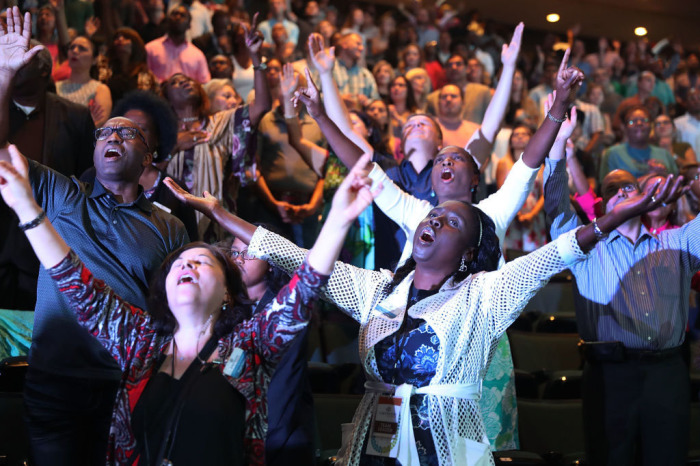Nearly a quarter of churchgoers plan to attend worship more regularly post-pandemic: Lifeway

Nearly one in four people who attended church before the coronavirus pandemic plan to attend more frequently after it has ended, according to Lifeway Research.
According to a report on Protestant churchgoers, Lifeway found that 91% plan to return to attending worship post-pandemic, with 23% saying they will attend more often.
The report also found that 6% responded that they will attend less often than before the pandemic, while 2% plan to rarely attend and 1% will stop altogether.
Churchgoers aged 18-29 were the demographic most likely to report planning to attend more, with 43% saying they will go to worship more than before after the pandemic.
“Two-thirds of pastors whose churches were open for in-person worship in January saw attendance of less than 70% of their January 2020 attendance,” stated Scott McConnell, executive director of Lifeway Research, in the report.
“Many of these pastors are wondering if those who haven’t returned ever will. Nine in 10 churchgoers plan to when it is safe to do so.”
The report drew from a survey conducted by Lifeway of 1,000 Protestant churchgoers from Feb. 5-18, with a margin of error of plus or minus 3.2% with a 95% confidence.
Other findings included 87% of respondents saying they stuck with the same church during the pandemic, 51% saying they did not attend worship in January of this year, and 83% saying they watched a livestream of a service instead of in-person attendance at least once in 2020.
Since it began early last year, the coronavirus pandemic has dramatically impacted churches, and pastors found themselves canceling in-person services for public health reasons.
Many have debated the long-term consequences of the pandemic on congregations and overall spiritual practice in the United States, with some seeing dire results.
For example, Barna Group President David Kinnaman told NPR last August that he expected as many as one in five churches in the U.S. to close over the next year-and-a-half.
“Even for those churches that have reopened, they’re seeing much smaller numbers of people show up. So simply reopening a church doesn’t fix the underlying economic challenges that you might have,” Kinnaman explained at the time.
Others have noted a rise in interest for religious matters, with the law firm Becket releasing a report last November which found Generation Z relying more on their faith than expected.
According to Becket’s Religious Freedom Index report, 74% of Gen Z respondents said faith was “at least somewhat important” during the COVID-19 pandemic, putting them above the 62% average of all generations.
The same report found that Gen Z respondents were most likely to consider faith “extremely or very important,” with 51% saying so. Millennials were the lowest at 31%.




























